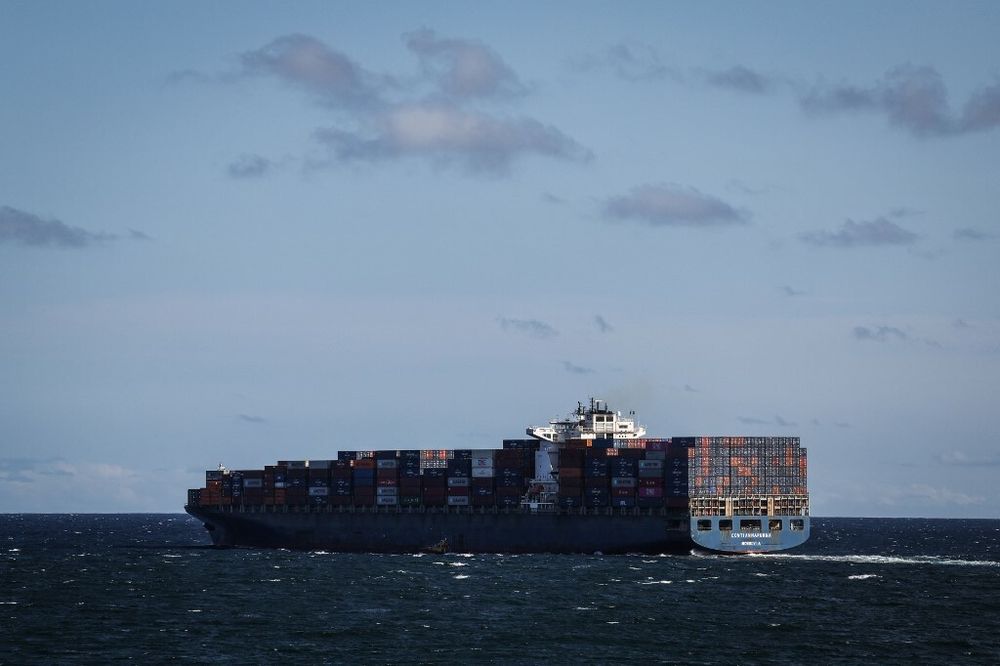Sec. of State Antony Blinken, Sec. of Homeland Security Alejandro Mayorkas, homeland security adviser Liz Sherwood-Randall and others will meet on Wednesday in Mexico with President Andrés Manuel López Obrador. Brandon Judd, the National Border Patrol Council president, calls the meeting a fool's errand.
"That's exactly what this is going to be. We're setting ourselves up for failure because we're expecting another country to fix our problems," Judd told Fox News.
Mexico, argued the 22-plus-years' border agent, has no real interest in border security because the relaxed border polices endorsed by President Joe Biden mean money for Mexico.

"It all comes down to incentive. Does the Mexican government have incentive to stop this illegal immigration that's taking place – and they don't, because they're generating billions of dollars for their own economy. If I were there, I would look at what it is they could do to help us and why would they want to," Judd said.
More than 35,000 migrants crossed the border into the U.S. over the Christmas holiday weekend, and more than 730,000 have entered since Oct. 1, Fox reported.
The Associated Press reports that Mexico has more than 32,000 troops and National Guard officers assigned to enforce immigration laws, yet its administration also appears disinterested.
This was made clear again on Tuesday when National Guard officers failed to stop or slow a caravan of more than 6,000 migrants – many from Central America and Venezuela – when they walked through Mexico's main immigration checkpoint in the south of its Chiapas state near the Guatemalan border.
In the past, Mexico's strategy of dealing with such caravans has been to let the migrants become too tired to move ahead. No caravan has ever walked the 1,000 miles to the U.S. border, AP reports. It's a walk that requires Venezuelans and others to hike through the jungles of the Darien Gap.
But migrants have become more resourceful. Hopping freight trains has become so popular that one of Mexico's two major railroad companies in September chose to suspend operations because of safety concerns.
A decade ago, more-interested Mexican authorities were known to pull migrants off railway cars. It's possible the U.S. delegation could ask the government to reinstate that policy.
Cartels expand their reach into Mexico's economy
More dollars for the economy are a strong incentive for Mexico, and an open border is big business for the drug cartels. The cartels pump lots of cash back into the local economy through their legal enterprises that support their illegal ones.
The cartels are active in all manner of work – from cabs and buses to distribution of fruits, production of corn tortillas, and the operation of fast-food establishments. That's not necessarily a positive for the local citizenry who in some cases find themselves overpaying for goods and services without even knowing it, El Pais reports.
Economic impact aside, violence tends to follow the cartels.
All things being considered, cash in the coffers is still a big draw for the government.
"The Mexican government wants to generate profit. They want their economy to succeed. If you look at the cartels, the cartels are generating billions of dollars for the Mexican economy," Judd said.
If Obrador and his administration are to enact meaningful policy change, Judd warns it's likely to come at a cost to the U.S.
"My fear is that they're going to try to extract concessions from us, whether that's monetary, whether that's easing sanctions on Venezuela. There are a lot of different things the Mexican government wants us to do, so they're going to try to extract those concessions for them to be true border security partners, and that just doesn't help us," Judd said.
Trump had a border plan
The Border Patrol Council leader explained that the Trump administration had more success in controlling the border because it threatened tariffs that were greater than the amount of money the cartels could bring in.
"That's why Mexico during the Trump era was willing to actually step up to the plate and do what was necessary to stop the illegal immigration through their own country," Judd noted. "Unless we give them something, they're not going to be willing to do anything."
The other alternative, he said, is for the U.S. to enforce its will at the border.
"… I don't think Blinken and Mayorkas are going to do [that]. I do not believe they're going to come with the big stick and tell them, 'If you don't do something, we're going to start using our power to force you to become true border security partners.' There's just no incentive for the Mexican government to do anything," Judd said.







